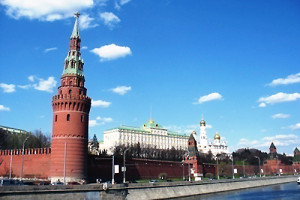NEWSWATCH: “Russia’s flirtation with fascism: Putinism is real, but fleeting” – The Daily Star (Lebanon)/Vladislav Inozemtsev

Assessing the Russian political system, Vladislav Inozemtsev writes in Lebanon’s The Daily Star that:
… the Russian system should be characterized as proto-fascist – tamer than European fascist states during the 1920s and 1930s, but still featuring key elements …. the structure of Russia’s political economy; the idealization of the state as a source of moral authority; and … international relations. …
He adds that, according to The Anatomy of Fascism, by Robert O. Paxton:
‘Fascism may be defined as a form of political behavior marked by obsessive preoccupation with community decline, humiliation or victimhood and by compensatory cults of unity, energy and purity, in which a mass-based party of committed nationalist militants, working in uneasy but effective collaboration with traditional elites, abandons democratic liberties and pursues with redemptive violence and without ethical or legal constraints goals of internal cleansing and external expansion.’
Inozemtsev goes on to relate aspects of fascism to tradition, selective populism and post-communism.
… a 1995 essay [by] Umberto Eco… defines fascism expansively as a ‘cult of tradition’ based in ‘selective populism.’ … as early as 1939, Peter Drucker claimed … that ‘fascism is the stage reached after communism has proven an illusion.’ … by these definitions, it would be difficult today to find any trend in Russian political society that could not be labeled fascist.
The author cites Putin’s power over the economy, use of force and propaganda.
… consider the state’s encroachment into the economy. … Moreover, Putin now has near-absolute control over the use of violence, thanks to multiple ‘enforcement agencies’ that report to him directly … state corporations’ … “private armies” or loyal warlords like … Kadyrov …[with] armed enforcers …. Completing the formula, Putin appeals to Russians’ sense of historical loss and former glory …. Russia’s propaganda machine is its most profound proto-fascist achievement.
However, it is suggested that fascism fostered by the Russian government has practical long-term weaknesses, such as a lack of roots in the populace; Russia’s history as a multi-ethnic empire rather than an ethnically homogeneous nation-state; and a Putin-centered personality cult:
… fascist elements in Russia did not emerge organically as they did in Europe in the early twentieth century. … they are being imposed on Russian society by the state …. Without any deep national roots among the people …. Second, Russia is a multiethnic country that … developed as an empire, not as a nation-state. … Russia[] … lacks the economic wherewithal to sustain an empire. … Putin’s Russia is a cult of personality. Short of a North Korean-style dynastic succession, these regimes never outlive the leader ….
The author goes on to suggest that Russia’s neighbors are less tolerant of totalitarianism than a century ago and raises the prospect of the West simply outlasting Putin’s Russia rather than overtly destroying it.
